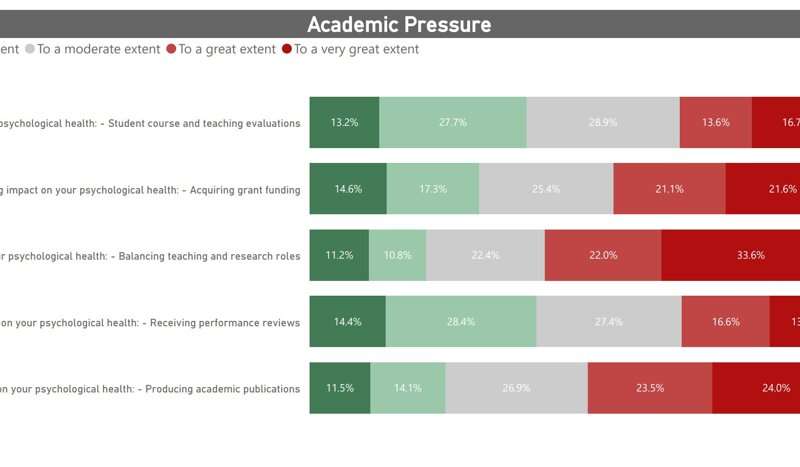Report: Australian university sector scores poorly when it comes to workplace health

A large survey of Australian university employees over the past four years paints a bleak picture, with almost 73% of professionals and academics reporting poor work environments in 2023.
The "Work, Digital Stress and Wellbeing Survey" involving almost 6,200 responses from university staff across every state and territory from 2020-2023, reveals a sector suffering high stress, exhaustion, and unrelenting work pressures.
Since the first survey in 2020, staff well-being has declined each year, to the lowest levels in 2023.
An interactive database outlining the findings has been produced by the Psychosocial Safety Climate Global Observatory, a world-first research center established in 2020 to help Australia meet the UN Sustainable Development Goal to promote decent and safe workplaces.
The research group led by University of South Australia Professor Kurt Lushington, in collaboration with ARC Laureate Fellow Professor Maureen Dollard, launched the interactive database today at a national conference at Curtin University in Perth.
The key findings over four years reveal that:
- 67% of Australian university employees report poor psychosocial safety* and are working in conditions of high to very high-risk for mental distress. In 2020, the figure was 61.8%, increasing to 72.9% in 2023.
- This risk is double that of the national average based on UniSA SuperFriend 2023 data from 10,000 Australian workers, with 37.5% of workers reporting high to very high-risk for mental distress.
- 43% reported extreme tiredness, anxiety or depression.
- 66% reported suffering burnout.
- Women and academic staff reported the highest levels of work pressures.
- Around three in five respondents reported conflicts between work and home/family life.
The study analyzed many aspects of working life for university staff, drilling down to the reasons behind the decline in workplace mental health. Topics included digital stress, job security, resourcing, creativity, leadership, engagement, job satisfaction and work-life balance among others.
"The metrics reveal a university sector that is facing serious problems that need addressing," Prof Lushington says.
"Among the top concerns are work pressures, cost cutting and restructures, digital work stressors, email overload, a lack of employee voice, student demands, and time constraints."
"The impetus for the study—the impact of digital work—included common tools for assessing workplace psychosocial risks, mental health, and work conditions. Subsequent research has shown that digital work is growing, but if universities are adequately resourced, well-being may not be seriously impacted."
Researchers say the results are timely and informative given the Australian Universities Accord interim report recommendation that universities prioritize staff well-being and safety.
"Some immediate considerations are a sector wide policy for universities to report on psychosocial safety climate (PSC) as a KPI (key performance indicator)," Prof Dollard says.
"Other recommendations include tethering management salaries to PSC KPIs; and separating the functions of Human Resources (HR) and Work, Health and Safety (WHS) within universities because of conflicting values in HR-led safety processes."
The first survey in 2020 coincided with the onset of COVID-19, a worldwide pandemic that severely impacted Australia's university sector. However, in the years since, staff well-being has deteriorated even further, the survey shows.
Of the 6,200 responses, the majority (62%) were from permanent staff. People on fixed term positions made up 12% of responses and casual staff comprised 6%. The remaining responses were from academics holding honorary appointments and other positions.
Professional staff accounted for 2,279 responses, compared to 2,847 from academics.
More information:
Survey report: stresscafe.net/wp-content/uplo … Dashboard-Report.pdf
Interactive database: bit.ly/3wklkce
Provided by University of South Australia